The long, messy legal battle was also a fight for his reputation. Cyrus wanted to tell the world that he was doing the right thing
Written by Coomi Kapoor
An introvert who shied away from public gaze, and a straightforward, scrupulously honest businessman, Cyrus Mistry never really recovered from the trauma of being thrust into the national limelight for daring to challenge the Tata behemoth.
In December 2012, when Cyrus Mistry took over the much-coveted position of chairperson of the mighty Tata Group at the age of 44, replacing outgoing chairperson Ratan Tata, it seemed as if he was indeed fortune’s favourite. But Cyrus’s appointment at the Tatas proved to be a poisoned chalice. The Mistry family, that is still recovering from the death of Cyrus’s father, billionaire construction magnate Pallonji Mistry, in June this year, has suffered a series of setbacks ever since Cyrus was sacked as chairperson of Tata Sons in 2016.
Former Tata Sons chairman Cyrus Mistry was died on Sunday in a road accident after his car hit a divider in Maharashtra’s Palghar district. (Express photo by Nirmal Harindran, 12th July, 2016, Mumbai)
An introvert who shied away from public gaze, and a straightforward, scrupulously honest businessman, Cyrus Mistry never really recovered from the trauma of being thrust into the national limelight for daring to challenge the Tata behemoth. The long and expensive litigation he launched against the Tatas in a bid to avenge his honour left him badly bruised and took a heavy toll on the Mistry family fortunes.
The ding dong legal battle between Cyrus and the Tatas stretched over many years. Though the appellate tribunal of the National Company Law Tribunal (NCLT) upheld all of Mistry’s charges, the Supreme Court last year took a diametrically opposite view and ruled decisively in favour of the Tatas. The court held that a private company is not subject to the norms of good governance meant for public and listed companies. Though shocked by the court verdict, Cyrus commented sportingly after the outcome, “We will take the knocks on our chins. My conscience is clear. My aim at Tata was to ensure a robust, brand-driven system of decision-making and governance that is larger than any single individual.”
The last few years have not been kind to the Mistrys on several fronts, with the family suffering heavy financial losses during Covid, since their assets are mainly tied up in construction and real estate, apart from their sizeable shareholding in Tata Sons. The family also lost huge revenues that they traditionally enjoyed through their long association with the Tata Group.
Mistry, son of Pallonji Mistry, the owner of Shapoorji Pallonji group and the biggest stakeholder in the Tata group, was appointed the sixth Chairman of Tata Sons in 2012. He was the chairman of Tata Group from 2012 to 2016. (Express Archives)
Most tantalising for the Mistrys is the fact that they are unable to monetise their 18.37 per cent shares in Tata Sons without the consent of the Tata Sons board thanks to new Articles of Association which were put into effect just before Ratan Tata relinquished charge in December 2012. The Articles of Association ensured that the Tata charitable trusts, notably the Sir Dorabji Tata Trust and the Sir Ratanji Tata Trust, tightened their grip over Tata Sons, the holding company which manages India’s top corporate house with an annual turnover of well over $100 billion. (Two years back, while the Shapoorji Pallonji Group pegged the worth of its Tata shares at Rs 1.76 trillion, the Tatas valued it at a mere Rs 80,000 crore and refused to even give the Mistrys the right to pledge their shares for raising money in view of their mounting debts.)
The SUV in which Cyrus Mistry was travelling is towed away, in Maharashtra’s Palghar, Sunday. (ANI )
A qualified civil engineer with a degree from Imperial College, London, and an MBA from the London Business School, Cyrus along with his brother Shapoor had helped modernise and diversify the family’s core business and proved extremely successful at it. When his father stepped down as a director of the Tata Sons board in 2005, it was he, rather than his more flamboyant elder brother Shapoor, who was chosen by Ratan Tata to become the family nominee on the board.
Eventually, when Ratan Tata retired as chairperson of the Tatas at the age of 75, Cyrus was chosen to step into his shoes since the selection committee could not find a suitable candidate. Unfortunately, once Cyrus took over charge of the group, the relationship between Ratan Tata and him slowly deteriorated. On October 24, 2016, Cyrus was unceremoniously and abruptly removed as chairperson without giving him any notice, and though there were only five months left for renewal of his contract. The reason for the growing differences between the two men was never completely clear. Cyrus believed he was trying to fix things, Tata perhaps feared he was attempting to undo his legacy.
Both Tata and Cyrus were members of the small minority Parsi community, but they came from rather different backgrounds. (Technically Cyrus was an Irish citizen as his mother was born in that country. Though he tried while at the Tatas to change his nationality, he did not manage to complete the necessary formalities.) The Tatas, as one Parsi businessman put it to me, considered themselves aristocratic and noble, and the Mistrys mere real estate people. But while Cyrus’s grandfather, the legendary builder Shapoorji Pallonji, and father, Pallonji Mistry, were hard nosed businessmen in the rough and tumble of the construction world, the bespectacled, earnest Cyrus grew up in a different era and environment.
He earned a reputation for sincerity and straightforwardness. A team player, he deliberately kept a low profile as Tata chairperson and believed the CEOs of the respective companies should be projected rather than himself. Business journalist Sucheta Dalal described him to me as “incapable of guile and very genuine… What he says is generally backed by documents.” Business executive Mukund Rajan, who has worked closely with both Ratan Tata and Cyrus, in his book Brand Custodian described Cyrus as “one of the smartest people I have ever met, a great leader who was not insecure, and voluntarily surrounded himself with people with great talent, skills and strong opinions, unlike many other leaders I have seen”.
Cyrus once corrected me when I termed his famed confrontation with Ratan Tata as a corporate battle. In a conversation, he remarked, “I was removed in an inappropriate manner. I can lick my wounds and put that behind us. That phase is over. But we have to do whatever is necessary to protect our 18.37 per cent in Tata Sons.” The reason he had persisted in his David versus Goliath fight was to ensure that the values of the Tata Group’s founders were respected. “This is about governance. It’s not about me, it’s not about position,” he stated.
Mistry was the second person outside the Tata family to head the Tata group. In Picture: Ratan Tata and Cyrus Mistry attend the 73rd Tata Chemicals Limited AGM at Birla Matoshri Mumbai. (Express Archives)
The long, messy legal battle was also a fight for his reputation. Cyrus wanted to tell the world that he was doing the right thing. He was following all the rules and doing what he thought was best for the company. He was deeply hurt by Tata executives’ insinuations that he was removed for incompetence. The facts suggest otherwise. During Cyrus’s three-and-a-half-year tenure as Tata chairperson, Tata shares fared better than average on the Bombay Stock Exchange. Cyrus could also feel vindicated in the fact that his successor, N Chandrasekharan, would go on to implement most of the measures he had already conceived in his recovery plan for the group, including unburdening the loss-making Tata Telecom business and closing down Nano production.
After his exit from Tata Sons, Cyrus did not take back management control at Shapoorji Pallonji and Co. and instead carved out something for himself. He floated a venture capital fund, Mistry Ventures, to back startups. In 2022, the Shapoorji Pallonji Group cleared a major portion of its outstanding debts by selling its stake in companies such as Eureka Forbes and Sterling and Wilson Renewable Energy. Post the Covid pandemic and subsequent lockdowns, its real estate division had finally started picking up.
In the tradition of most Parsi business families, the Mistrys too were notable philanthropists. In 2018, Shapoor and Cyrus set up the Institute for Zoroastrian Studies in the memory of their grandfather Shapoorji Pallonji, at the School of Oriental and African Studies, London.
Cyrus is survived by his wife Rohiqa, the daughter of leading lawyer Iqbal Chagla, and sons Firoz and Zahan.

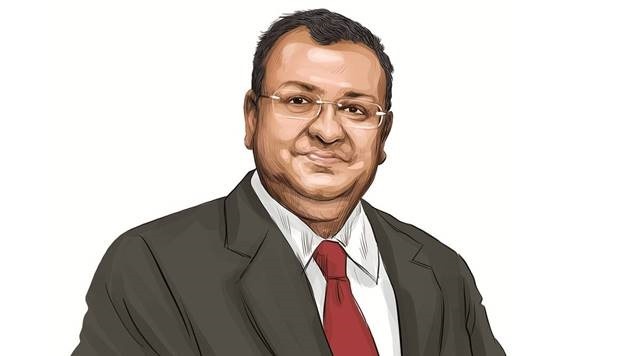
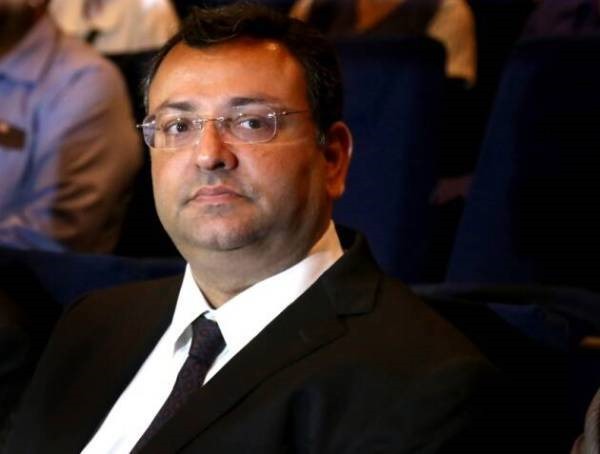
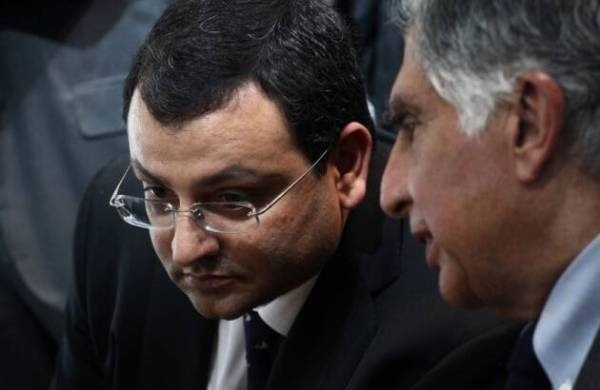

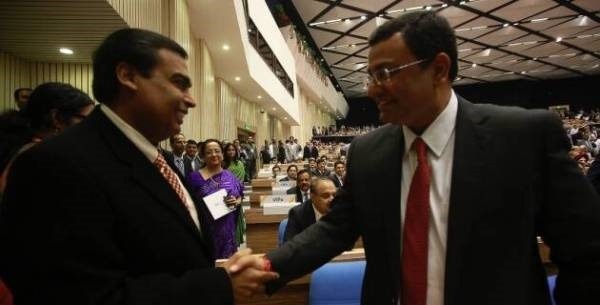
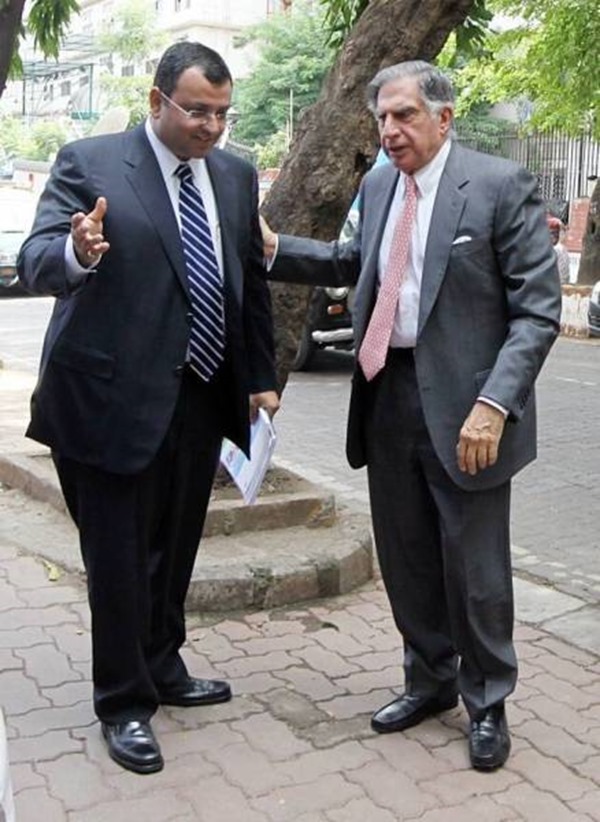
Shapoorji Pallonji Cos Group has done a Yeoman service helping Masina Hospital with the Burns Unit &
Oncare Cancer Services under Boman Dhabhar Foundation Trust, Offering most Benevolent Care under Dr Boman N Dhabhar, Dr Pouru B Dhabhar, Dr Jehan B Dhabhar & Dr Khurshid J Mistry for the Needy Ones in true Zoroastrian Spirit. Charity Trusts should support them!
Please do a write up on them in your Publications.